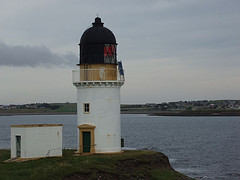
The History of Labor
Day
Labor Day: How it Came About; What it
Means
"Labor Day differs in every essential way from the other
holidays of the year in any country," said Samuel Gompers, founder and longtime
president of the American Federation of Labor. "All other holidays are in a
more or less degree connected with conflicts and battles of man's prowess over
man, of strife and discord for greed and power, of glories achieved by one
nation over another. Labor Day...is devoted to no man, living or dead, to no
sect, race, or nation."
Labor Day, the first Monday in September, is a creation of the labor movement and is dedicated to the social and economic achievements of American workers. It constitutes a yearly national tribute to the contributions workers have made to the strength, prosperity, and well-being of our country.
Founder of Labor Day
More than 100 years after the first Labor Day observance,
there is still some doubt as to who first proposed the holiday for workers.
Some records show that Peter J. McGuire, general secretary of the Brotherhood of Carpenters and Joiners and a cofounder of the American Federation of Labor, was first in suggesting a day to honor those "who from rude nature have delved and carved all the grandeur we behold."
But Peter McGuire's place in Labor Day history has not gone unchallenged. Many believe that Matthew Maguire, a machinist, not Peter McGuire, founded the holiday. Recent research seems to support the contention that Matthew Maguire, later the secretary of Local 344 of the International Association of Machinists in Paterson, N.J., proposed the holiday in 1882 while serving as secretary of the Central Labor Union in New York. What is clear is that the Central Labor Union adopted a Labor Day proposal and appointed a committee to plan a demonstration and picnic.
The First Labor Day
The first Labor Day holiday was celebrated on Tuesday,
September 5, 1882, in New York City, in accordance with the plans of the
Central Labor Union. The Central Labor Union held its second Labor Day holiday
just a year later, on September 5, 1883.
In 1884 the first Monday in September was selected as the holiday, as originally proposed, and the Central Labor Union urged similar organizations in other cities to follow the example of New York and celebrate a "workingmen's holiday" on that date. The idea spread with the growth of labor organizations, and in 1885 Labor Day was celebrated in many industrial centers of the country.
Labor Day Legislation
Through the years the nation gave increasing emphasis to
Labor Day. The first governmental recognition came through municipal ordinances
passed during 1885 and 1886. From them developed the movement to secure state
legislation. The first state bill was introduced into the New York legislature,
but the first to become law was passed by Oregon on February 21, 1887. During
the year four more states — Colorado, Massachusetts, New Jersey, and New
York — created the Labor Day holiday by legislative enactment. By the end
of the decade Connecticut, Nebraska, and Pennsylvania had followed suit. By
1894, 23 other states had adopted the holiday in honor of workers, and on June
28 of that year, Congress passed an act making the first Monday in September of
each year a legal holiday in the District of Columbia and the territories.
A Nationwide Holiday
The form that the observance and celebration of Labor Day
should take were outlined in the first proposal of the holiday — a street
parade to exhibit to the public "the strength and esprit de corps of the trade
and labor organizations" of the community, followed by a festival for the
recreation and amusement of the workers and their families. This became the
pattern for the celebrations of Labor Day. Speeches by prominent men and women
were introduced later, as more emphasis was placed upon the economic and civic
significance of the holiday. Still later, by a resolution of the American
Federation of Labor convention of 1909, the Sunday preceding Labor Day was
adopted as Labor Sunday and dedicated to the spiritual and educational aspects
of the labor movement.
The character of the Labor Day celebration has undergone a change in recent years, especially in large industrial centers where mass displays and huge parades have proved a problem. This change, however, is more a shift in emphasis and medium of expression. Labor Day addresses by leading union officials, industrialists, educators, clerics and government officials are given wide coverage in newspapers, radio, and television.
The vital force of labor added materially to the highest standard of living and the greatest production the world has ever known and has brought us closer to the realization of our traditional ideals of economic and political democracy. It is appropriate, therefore, that the nation pay tribute on Labor Day to the creator of so much of the nation's strength, freedom, and leadership — the American worker.












This was so interesting to read, Guido! Thanks for doing the research on it. I never knew so much about it. Growing up, when Labor Day Weekend was here it always signified the end of summer. Judging by the 95 degree weather we are having today I doubt the end of summer is anywhere near <sigh>.
ReplyDeletePam
That is very interesting, I did not know about Labor Day although I had heard of it. Thank you for the information.
ReplyDeletehttp://journals.aol.co.uk/jeanno43/JeannettesJottings/
I think I learned some things from you Guido :)
ReplyDeleteVivian
TY for the interesting read!
ReplyDeleteSmooches, Sugar
Labor day is a lot of things to a lot of people. If you get away from the " offical meaning" of the day you will see what Americans really do on that day: this is the last "unoffical" weekend of the summer -- everyone heads for the beach (around here that is what they do), have picnics, grill out, ball games, Jerry Lewis telethon, government business' close down. The average worker still has to work unless they are lucky enough to work in offices (usually this is true).
ReplyDeleteKathy
Thanks for the history lesson! Here, we mainly just rest, relax, cookout or get in one last day of summer. - Barbara
ReplyDelete